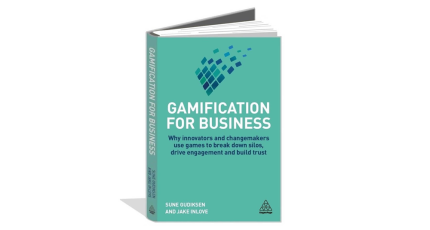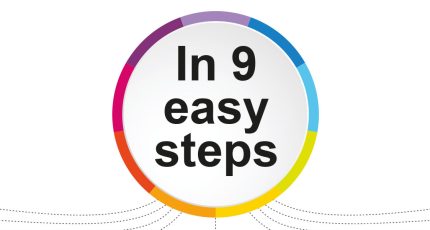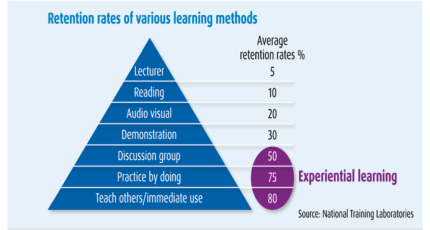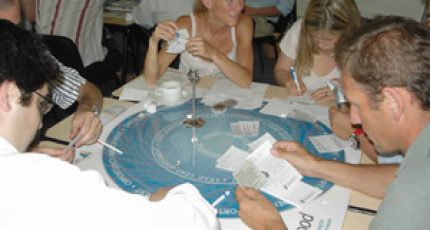Design Services - Creating Bespoke Solutions
Designing results-driven learning and development programmes to target your unique challenges and improvement areas.
Using business simulations and management games as part of staff training and assessment is a powerful, results-rich method to improve your team’s knowledge, skill and capability.
When specifically designed or carefully matched to your requirement this is the most effective way to address the unique challenges and improvement areas within your organisation, delivering targeted solutions that drive real change.
Having worked closely with a diverse range of high-profile clients, over many years, Elgood Effective Learning knows how to create highly effective bespoke solutions that tackle your specific issues. We partner with you to develop engaging, innovative solutions that reflect your business and create dynamic experiential learning opportunities increasing the efficiency and effectiveness of your workforce.
Driving Improvement Together
Designing the vehicle that will deliver the specific learning and development improvements you require can be summed up in three words – Analyse, Design and Deploy. Key to this is our ability to work with you as an extension of your team, with the flexibility to work around your busy schedule.
It starts with us listening to your challenges and needs and taking the time to understand your culture. From here we will:
- Assess which approach is best suited to your organisation and present you with some options
- Once we agree on the course of action we can design and create a prototype or incorporate one of our tried and tested products into your programme, which can be refined to suit the best delivery method and your in-house resources
- Deployment starts with testing on a sample audience and following feedback we fine tune ready for live delivery.
If you think a bespoke management game or business simulation is the most suitable option to meet your objectives, the expert team at Elgood, will design a solution which is a perfect fit for your organisation and can be used time and again. You can learn more about Elgood’s design process here:
The pathway to your bespoke learning and development solution
Our first meeting with you and your colleagues is on a no obligation basis. We will focus on two fundamental things:
- What is your business problem?
- What is the outcome that you want?
At this stage we will also find out about your audience and who the training is targeted at, establish your timescales and budget, and make suggestions as to how we can take your project on to the next stage. Following the meeting, we will confirm our understanding of your requirement and offer some initial ideas free of charge.
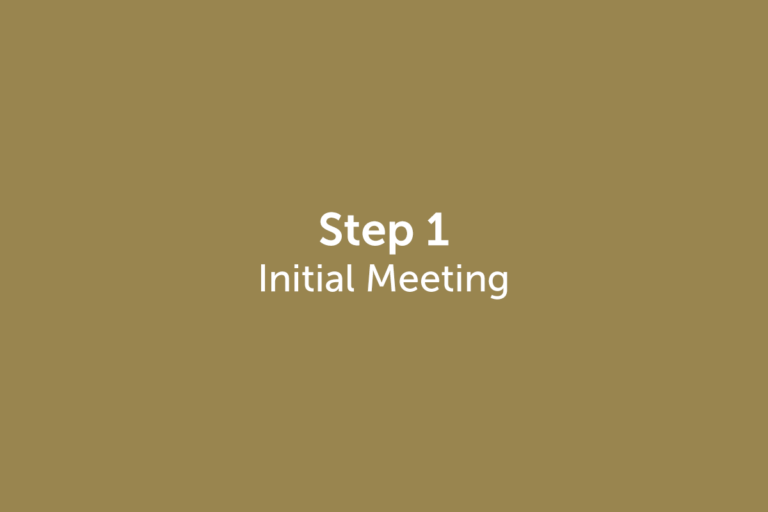
The next stage is a scoping meeting involving your key personnel to ensure there is agreement on the learning objectives, and to evaluate several options for the format of your solution.Within two weeks of this meeting, we will deliver a project plan and design outline, advising you on what we believe will be the best method of delivery to meet your goals and suit the culture of your organisation. This will also give details of costings, time scales and the commitment required from all key parties. There is a charge for this service. There is no obligation to continue if your plans change.
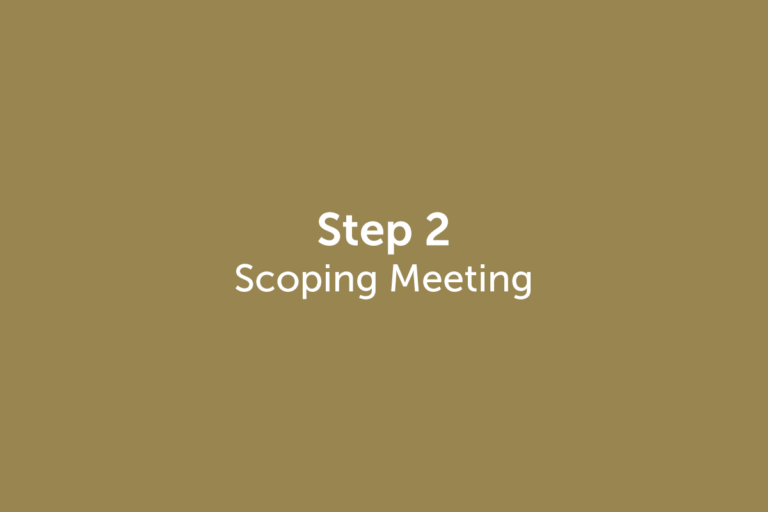
Once you have decided to proceed with us and any adjustments to the scoping document have been made, we will generate a first prototype of your learning and development solution. We call this version the ‘breadboard’, using a term from electronics which refers to placing components experimentally on a blank board while functionality is tested. At this point, the first stage payment will be due, and you are free to continue, postpone or redefine the project if you choose. Once we have presented the prototype to you, we will incorporate your feedback into the next stage of the process and generate a full trial version.
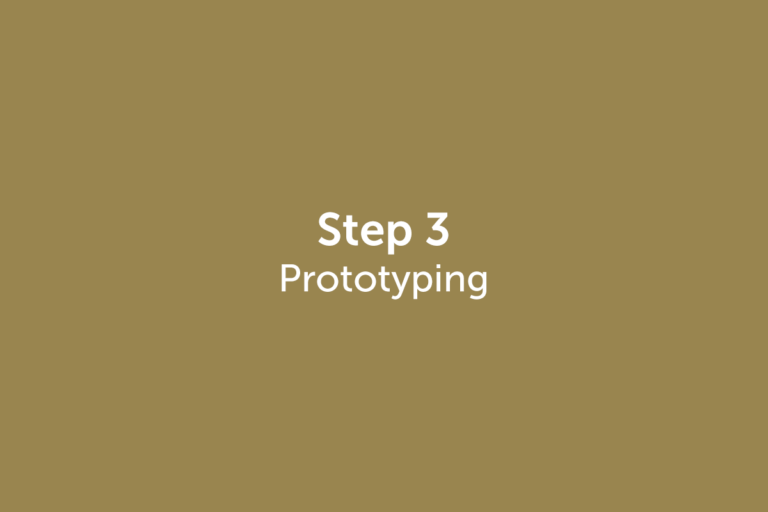
The trial version is much closer to the final product, and we will arrange to deliver and facilitate a test run of this on a subset of your final audience, or if this is not possible on a proxy audience which may consist of staff from another business area or possibly colleagues from the design team. Here we can iron out any difficulties and refine the simulation to ensure we are hitting your learning targets. Again, at this point, a payment will be due, and you are free to continue, postpone or redefine the project if you choose.
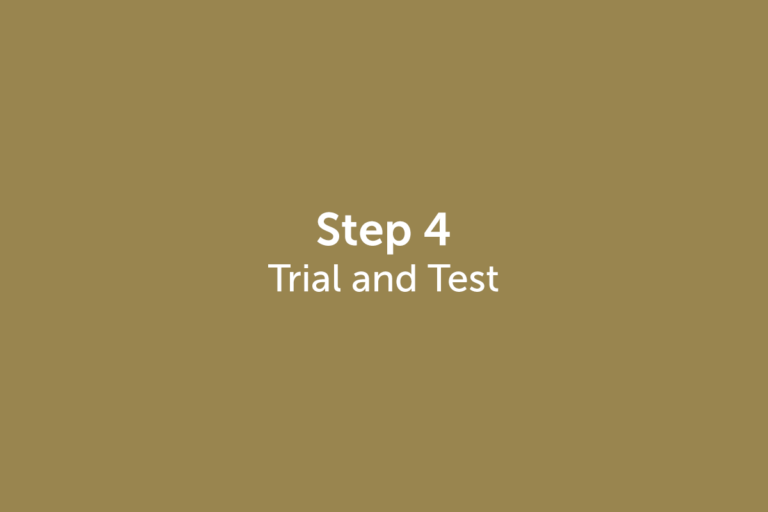
The final simulation is delivered and, if required we can help facilitate the first event to help you find your feet, run a ‘train the trainer’ session, or provide ongoing facilitation support. The final payment will now be due.
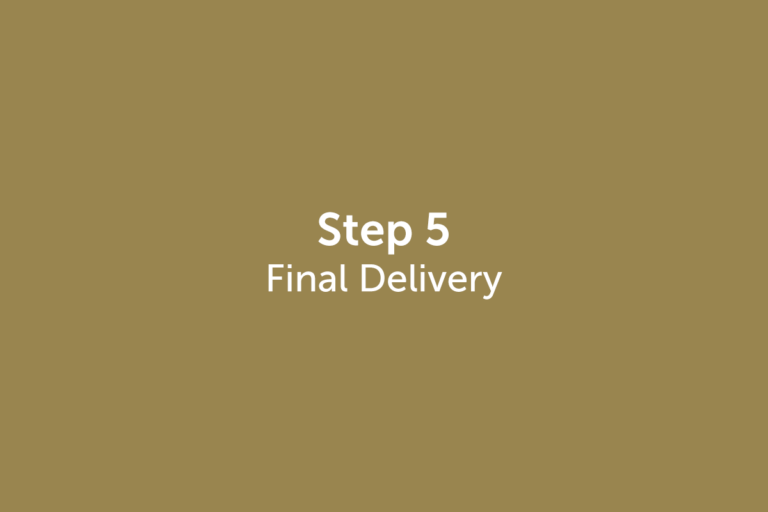
Frequently Asked Questions
What is Experiential Learning?
This refers to learning that an individual derives from experience. The term comes from the book Experiential Learning: experience as the source of learning and development published by David A Kolb (Englewood Cliffs, Prentice Hall, 1984).
In the book Kolb explained how a person learns through a cycle of discovery and experience. The Kolb learning cycle has four stages.

In situations where it is difficult for people to gain live experience the use of games and simulations can be used to mimic reality. The activity provides the active experimentation and concrete experience and the individual can then learn through reflective observation and abstract conceptualisation with the potential of going around the circle again to test out their new-found knowledge.
Retention rates from activities that incorporate experiential methods result in significantly higher retention rates – 75% from practice by doing in comparison to 5% from a lecture.
Research by National Training Laborotries.
How can a simulation game help my business?
Targeted business simulation games are designed to improve knowledge and develop understanding about the business, which in turn leads to more efficient and effective organisations. For your staff members to be effective they need to understand how your business works, what it takes for the organisation to be successful and, crucially, what contribution they need to make to ensure it is operating effectively and efficiently.
A business simulation is one of the most effective learning processes you can employ. The experience develops participants’ business acumen, helping them to understand what the extent of their contribution is, and raising awareness of how their decisions, behaviour and attitudes affect their colleagues. They will learn to make better decisions for the organisation and form better relationships, giving you a more effective, motivated and knowledgeable workforce.
What are the benefits of a business simulation or management game for my participants?
Business simulations and management games promote learning in a stimulating way. They encourage commitment and engagement from every participant, and the hands-on activities improve confidence and skills across the board. Everyone benefits from learning by doing and the lessons really stick. Your participants will experience the impact of their decision-making, whether good or bad, in a risk-free environment. Working as part of a team your participants will also hone their cooperation and communication skills thus improving their management capability, and participants in managerial roles will learn how the component parts of a system are linked, empowering them to make informed decisions which benefit the whole organisation.
What are the benefits of a business simulation or management game for my facilitators?
Business simulations and management games are interactive and engaging. They increase energy levels and enable your facilitators to assess the competence of the participants. Have they really grasped the important facts and concepts? Will they know what they have to do back in the real world? Your facilitators will also be able to observe individual behaviour and group dynamics as they take part in the simulation game. Do the participants have the skill to convey the new ideas to their teams and work colleagues, and will they be able to implement any changes or adjustments required?
Complementing your other training activities the simulation game adds an extra delivery method into the training mix to suit different learning styles and, a bespoke simulation game will be highly relevant to your organisation, so your facilitators will benefit from being able to draw on real examples and experiences to bring the ideas to life and ensure the learning is applicable to your participants.
A business simulation game will be the highlight of the training event, providing a structured focal point which has your key learning embedded within it.
How can simulation games enhance my training event?
We gather feedback from every management game and business simulation we design and run. Here’s what our clients say:
- Active learning keeps our people involved in the whole process.
- Simulations draw out everyone’s strengths across the group.
- Learning by experience is fun and interactive, engaging all the senses.
- Role-playing fosters negotiation and problem-solving skills.
- Business-specific simulations add real relevance to our events.
- Our participants retain new information better.
“the increased retention over time of learning appears to be one of the most consistent findings within the research into the potential of games for learning”
Simon Egenfeldt-Nielsen of the University of Copenhagen
Can a Business Simulation Game help me assess the skills and capabilities of individuals?
Business simulation games can be used as part of both formal and informal assessment activities. If you have a clear understanding of the competencies required and how these would be demonstrated, you can create a checklist to allow observers to assess individuals while they are participating in an activity. A similar checklist can be used by the participants themselves to reflect on their behavior after the event.
Business simulation games can be used as part of a recruitment, induction, development or assessment process.
Read our Warwick case study
Read our assessment or development centre page
How can business games be used in induction?
All organisations have a structure and processes for their activities. A game can be used to familiarise new employees with both the structure and the process of the particular organisation. For example, this is a board game which provides new employees joining a shipping company with the process for the main business and also the department (structure) of the business.
I want to use a business simulation or management game where do I start?
Contact us to set up an initial no obligation meeting over the phone or face to face. We will listen carefully to your requirements and make suggestions as to how we can take your project to the next stage. Following the meeting we will confirm our understanding of your requirement and offer some initial ideas free of charge.
How much will a business simulation or management game cost me?
Every client has specific needs, different participant numbers and varying timescales. We will give you a firm quotation early on in the consultative process, and guarantee that your reusable bespoke simulation will deliver an excellent return on your investment.
How much time will it take me to set up the game or simulation?
From initial consultation to delivery, typically between two weeks and three months depending on the type of product required. Our skills in needs analysis mean we get to the heart of your issue very quickly.
Do I need to employ a consultant to use an Elgood game or simulation?
Many of our games and simulations can be used by a competent manager who has, themselves, benefited from management training. They can be used by trainers working for an organisation or on a freelance basis to reinforce ideas included in their own training materials. If we believe facilitation assistance might be useful, for example for some of our business simulations, we provide this service.
Elgood Effective Learning - for improved performance - call us today on 0118 982 1115
Sectors supported
Elgood has created unique learning and development solutions for a broad spectrum of organisations.

Businesses
Designed and developed two key stages of a staff induction programme for P&O Nedlloyd
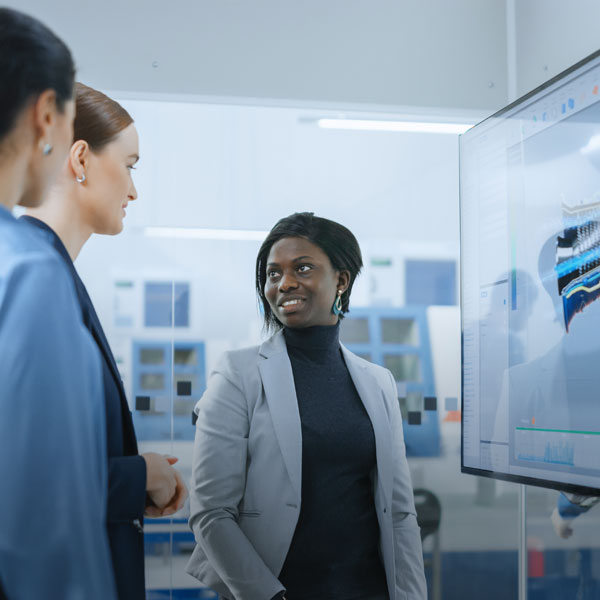
Public Sector
Worked with the Borough of Newham to design and deliver a staff assessment day, structured around a business simulation game.

Universities
Employed Elgood business simulations to build practical experience of decision-making and problem-solving into the University of Kent’s vocational courses.

Professional Institutions
The Institute and Faculty of Actuaries used an Elgood simulation to increase students’ business awareness and customer service mentality.
Customisable products to embed in your training and development activities
Here is a selection of products that we regularly customise to support a client’s specific learning and development objectives. We also offer facilitation support as required.
Elgood Effective Learning - for improved performance - call us today on 0118 982 1115
Insights
More and more businesses are turning to business games and simulations to create lasting behavioural change amongst their employees. Simulations and games are recognised as a safe way to help people learn about themselves and the impact the decisions they take have on business operations and profitability today and in…
In this white paper we explore three universal challenges every business faces and show how progressive intuitive teams can be nurtured through the use of effective experiential learning; learning by doing. Research by the National Training Laboratories (Kolb’s learning cycle) suggests passive learning models like presentations drive only 5% retention….
Business simulation transforms Oracle Sales Managers When Oracle, the world’s largest enterprise software company, wanted to implement a complete training package for their sales managers across Europe, the Middle East and Africa (EMEA), they turned to Elgood Effective Learning to devise a suitable business simulation game. Oracle wanted to address…
You can’t move for statistics on the numbers of companies that are discussing a business transformation as a result of the pandemic or have Transformation Progress accelerated their plans because of it. For many leaders, transforming their business is about adopting a digital first approach. This is costly, resource intensive…

